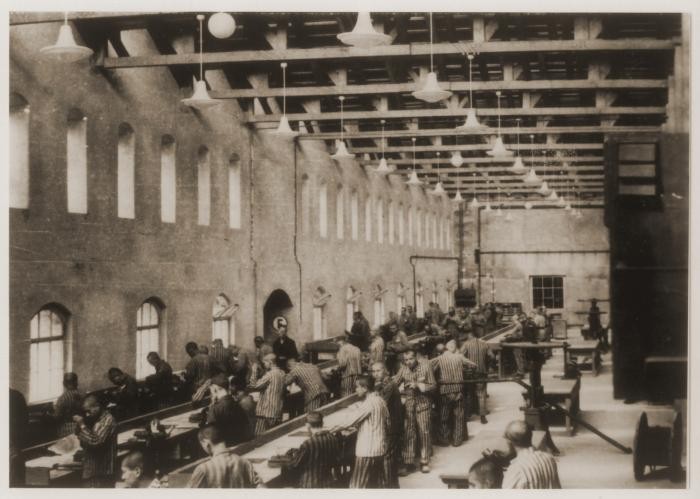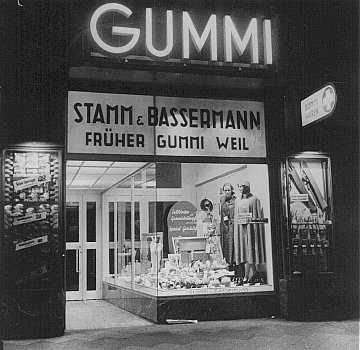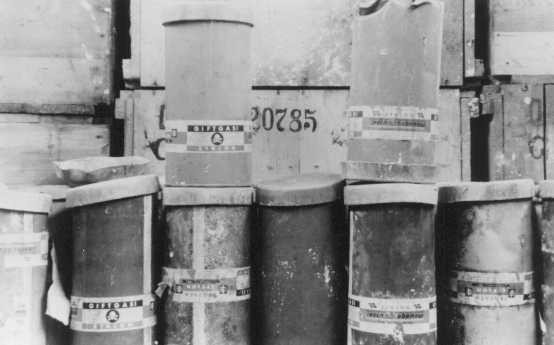
The Role of Business Elites
Persecution of Jews and other groups was not solely the result of measures originating with Hitler and other Nazi zealots. Nazi leaders required the active help or cooperation of professionals working in diverse fields who in many instances were not convinced Nazis. Among these professionals were business leaders.
Business leaders, focused on profits and especially the survival of their enterprises, were complicit in the persecution of Jews, actively assisting or accomodating the dismissal of Jewish directors and employees and the “Aryanization” of Jewish-owned businesses and in the use of labor during the war.

Leaders of banks, insurance companies, and other commercial and industrial businesses participated in the persecution of Jews. Many of them played a role in the “Aryanization” of the German economy, the expropriation of Jewish assets, and the use of forced labor during the war.
At first big German banks and businesses in some cases resisted “Aryanization,” often for reasons of self-interest, including the desire to keep skilled colleagues. But by 1937, most had complied with the law requiring the dismissal of Jewish executives, board members, and employees. Some large banks and firms placed some of their Jewish executives in branches abroad. The big banks were also involved in the “Aryanization” of larger Jewish businesses or import-export firms, handling the property transfers.
Reflecting the existence of some room for maneuver, not all banks behaved unscrupulously. Banks were concerned that “Aryanized” banks and other businesses not fall into weak hands, so did not always transfer property to the lowest bidder, with the result that some Jewish owners received fairer compensation. In any event, the drive for maximum profits or the long-term strength and survival of a bank or business was often more significant as motivation than the prejudices against Jews held by many Germans in the business fields.
During the war, specific, privately owned companies became implicated in the crimes of the Holocaust through the use of forced labor. About one-half million Jews lost their lives as forced laborers. One of the largest German corporations, I.G. Farben, managed a synthetic fuel and rubber factory near Auschwitz that employed up to 35,000 prisoners; at least 27,000, the majority of them Jewish, died from harsh conditions. The firm Hugo Scheider used forced laborers in an ammunition plant in occupied Poland; about four-fifths of the 25,000 Jews who passed through the Skarzysko-Kamienna plant died as a result of unhealthy working conditions.

Other German firms produced products used in the killing process, such as the pesticide Zyklon B produced by Degussa and the crematorium ovens manufactured by Topf & Sőhne After the war, directors of these enterprises tried to distance themselves from the crimes, claiming that they had no knowledge of the use of their products.
Critical Thinking Questions
Consider the roles of these professionals. How might their traditional responsibilities be tested in times of social upheaval?
Business leaders and owners did not directly injure or murder Jews during the Holocaust. Do you agree with this statement? Do they have any responsibility for the events leading to the “Final Solution”? Why or why not?
How can knowledge of the events in Germany and Europe before the Nazis came to power help citizens today respond to threats of genocide and mass atrocity?
How have professional codes of conduct changed after the Holocaust?

